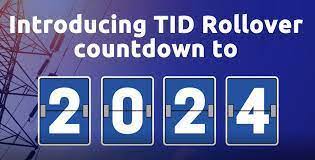
Understanding key technological concepts

By Heskiel Edward
In today’s rapidly evolving world, technology plays a significant role in shaping our lives and societies.
As advancements continue to surge forward, new terms and concepts can often feel overwhelming, especially for those without an ICT (Information and Communications Technology) background. In this article, I aim to simplify and shed light on some key technological buzzwords while emphasizing the benefits they bring to our lives.
Let’s demystify some of these terms and explore their significance in the context of recent technological changes in Namibia.
Blockchain:
Imagine a digital ledger, like a record-keeping book, where transactions are written down. Now, instead of one person or authority maintaining this book, it is distributed across a vast network of computers. When someone adds a new transaction to the book, it must be verified by multiple computers on the network before it’s accepted. This decentralized and secure system is called a blockchain. It’s primarily known for its association with cryptocurrencies like Bitcoin but has far-reaching potential for various applications beyond finance, such as supply chain management, voting systems, and more. This design ensures that the data cannot be tampered with, making it highly reliable for various applications. For instance, in Namibia, blockchain could be used to create a transparent land registry system, reducing fraud and promoting trust among property owners and potential buyers.
Cybersecurity:
In our digital age, cybersecurity acts like a virtual shield that protects our sensitive information and online activities from potential threats. It involves employing various methods, like strong passwords, encryption, firewalls, and antivirus software, to keep our data safe from hackers and cybercriminals. Just like you lock your doors to protect your home, cybersecurity safeguards your digital world. It is vital in today’s interconnected world to safeguard sensitive information and ensure privacy. As digital services expand in our country, such as e-commerce and online banking, implementing robust cybersecurity measures becomes essential to protect citizens from cyber threats and financial fraud.
AI (Artificial Intelligence):
AI brings the idea of intelligent machines to life, making them capable of performing tasks that typically require human intelligence. Think of it as having a computer that can “think” and “learn” from experience, just like how you learn new things from books or experiences. AI enables computers to analyze data, recognize patterns, and make decisions or predictions. From voice assistants like Siri and Alexa to self-driving cars, AI has a significant impact on our lives, making things more convenient and efficient. But don’t worry, these AI systems are designed to assist us and not take over the world like you might see in sci-fi movies. AI powers various technologies, for example, chatbots (ChatGPT) that provide customer support.
ChatGPT:
Talking about ChatGPT is an AI-powered computer program designed to understand and produce human-like text. It can chat with users, answer questions, and conversationally provide information. Its applications include answering questions, translating languages, assisting with writing, creating chatbots, and aiding in education.
Is ChatGPT the same as googling things on the internet? No, ChatGPT is not the same as Googling things on the internet. While both involve accessing information, they are fundamentally different processes. ChatGPT generates responses based on its pre-existing knowledge from training data while Googling involves searching the internet in real-time to access information available online.
4IR (Fourth Industrial Revolution):
The Fourth Industrial Revolution is a term that describes the current era of technological advancements. It builds on the digital revolution (the rise of computers and the internet) and combines technologies like AI, robotics, the Internet of Things (IoT), and more. This revolution is reshaping industries and the way we live and work, leading to greater automation, connectivity, and smarter systems. 4IR has the potential to transform entire industries, leading to enhanced efficiency and new opportunities for growth in Namibia, such as using IoT in agriculture to monitor crops’ health and optimize water usage.
Cloud Computing:
Cloud computing is like renting space on powerful remote computers called servers. Instead of storing files on your device, you store them on the internet, enabling access from anywhere with an internet connection. Services like OneDrive, Google Drive, iCloud, and Dropbox exemplify cloud computing, providing convenience, scalability, and reduced reliance on physical storage. For instance, Paratus Namibia established a data center that offers secure storage and seamless data access from various locations. Using cloud services means utilizing someone else’s computer (e.g., Paratus’ secured computers) to manage your data, saving you from managing physical hardware and enabling access to connected devices.
E-Governance:
In a world where almost everything is digital, e-Governance refers to the use of technology to make government services and processes more efficient and accessible to the public. Instead of visiting government offices in person, you can handle various tasks online, just as shopping or socializing on the Internet. e-Governance allows citizens to pay taxes, apply for documents like passports or driver’s licenses, and interact with government officials through digital platforms.
E-governance aims to make government services more convenient and inclusive while reducing
bureaucratic hurdles. e-Governance promotes transparency by providing easy access to government policies, and public data and it helps cut down on paperwork, making government processes more efficient and eco-friendly.
Digital Transformation:
Digital transformation is the process through which organizations or societies integrate digital technologies into their operations, strategies, and cultures to bring about positive and impactful changes. It goes beyond just adopting new technologies; it involves rethinking and redesigning processes to be more efficient, customer-centric, and data-driven. Digital transformation can empower businesses, and governments, lead to improved education through e-learning platforms, better connectivity in remote areas, and empower communities to adapt to the modern world and thrive in the digital age.
These technological concepts may sound complex, but their benefits and applications are tangible and relevant to Namibia’s current technological landscape. Embracing these technologies can lead to a more inclusive and connected society, boosting economic growth, improving public services, and enhancing the overall quality of life for Namibian citizens.
 Heskiel Edward, is a Technology Expert & Enthusiast, with qualifications in Computer Science and Business Systems Analysis. He specializes in various industrial technologies and is passionate about driving Namibia’s technological advancement.
Heskiel Edward, is a Technology Expert & Enthusiast, with qualifications in Computer Science and Business Systems Analysis. He specializes in various industrial technologies and is passionate about driving Namibia’s technological advancement.













































